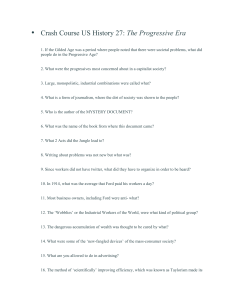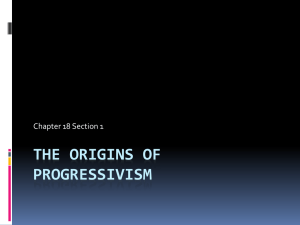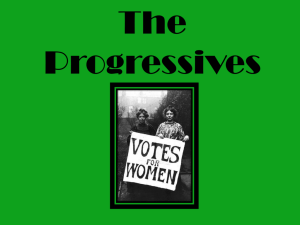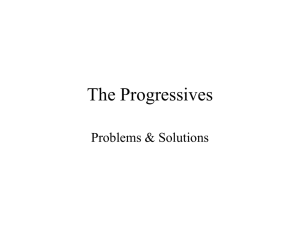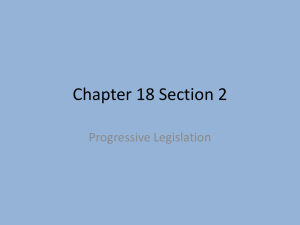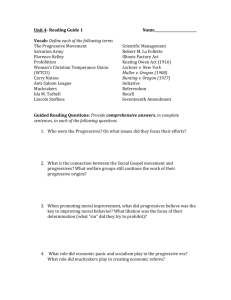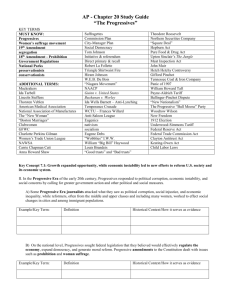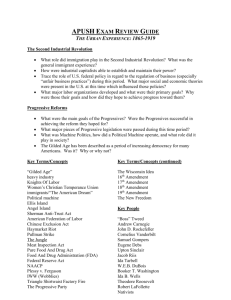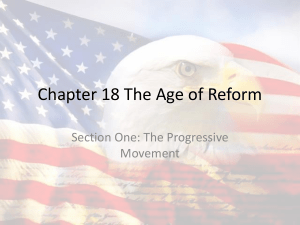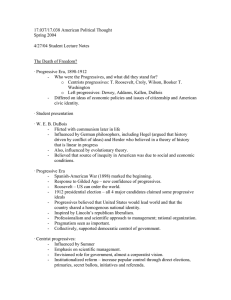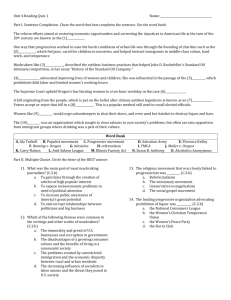Progressive Movement
advertisement
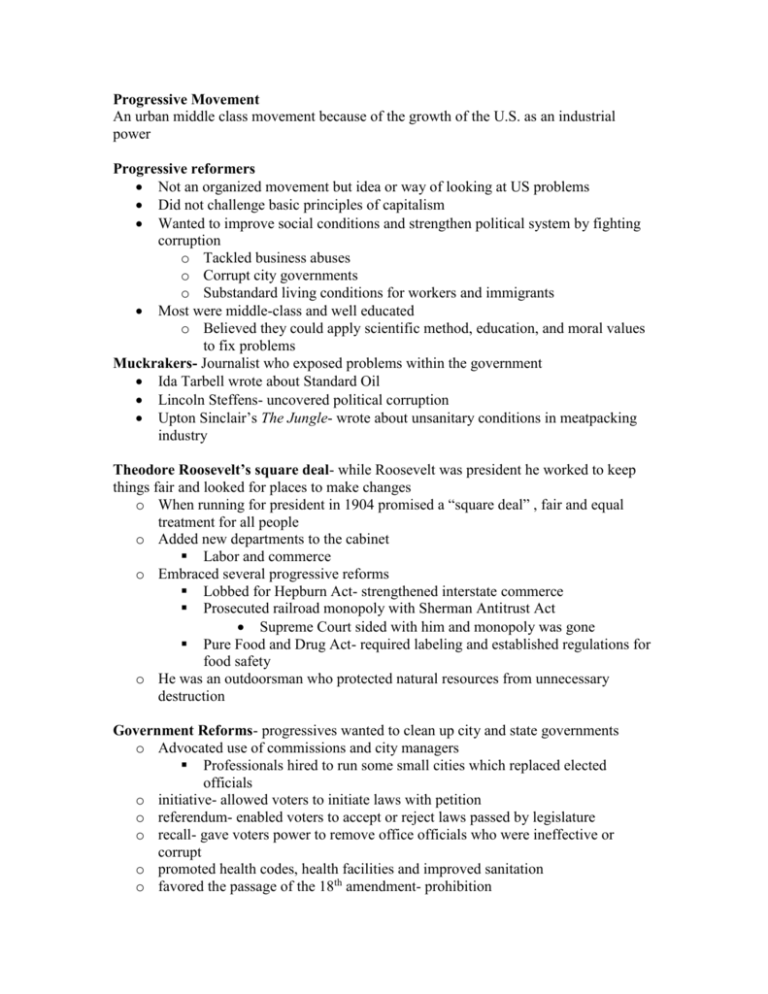
Progressive Movement An urban middle class movement because of the growth of the U.S. as an industrial power Progressive reformers Not an organized movement but idea or way of looking at US problems Did not challenge basic principles of capitalism Wanted to improve social conditions and strengthen political system by fighting corruption o Tackled business abuses o Corrupt city governments o Substandard living conditions for workers and immigrants Most were middle-class and well educated o Believed they could apply scientific method, education, and moral values to fix problems Muckrakers- Journalist who exposed problems within the government Ida Tarbell wrote about Standard Oil Lincoln Steffens- uncovered political corruption Upton Sinclair’s The Jungle- wrote about unsanitary conditions in meatpacking industry Theodore Roosevelt’s square deal- while Roosevelt was president he worked to keep things fair and looked for places to make changes o When running for president in 1904 promised a “square deal” , fair and equal treatment for all people o Added new departments to the cabinet Labor and commerce o Embraced several progressive reforms Lobbed for Hepburn Act- strengthened interstate commerce Prosecuted railroad monopoly with Sherman Antitrust Act Supreme Court sided with him and monopoly was gone Pure Food and Drug Act- required labeling and established regulations for food safety o He was an outdoorsman who protected natural resources from unnecessary destruction Government Reforms- progressives wanted to clean up city and state governments o Advocated use of commissions and city managers Professionals hired to run some small cities which replaced elected officials o initiative- allowed voters to initiate laws with petition o referendum- enabled voters to accept or reject laws passed by legislature o recall- gave voters power to remove office officials who were ineffective or corrupt o promoted health codes, health facilities and improved sanitation o favored the passage of the 18th amendment- prohibition Education- progressives though education was the key to the future and wanted to improve the system o John Dewey, Jane Adams and Henry Barndard led the fight to improve public schooling o More children worked in factories than were in school o Many kids did not have the opportunity to go to school because they were working in the factory o John Spargo- wrote about bad conditions of child labor o Illinois was the first state to try and restrict child labor o Law was repealed o National Child Labor Committee- worked to try and get child labor laws passed Child Labor Legislation- progressives wanted a national agency to address the problems of child labor o President Taft established a children’s Bureau- investigate matters related to children o Keating-Owen Act-Forbid transportation of products made in factories with workers under 14 and mine workers under 16 o 1918 congress declared unconstitutional o Another law putting a 10% tax with child workers o 1922 Supreme Court turned down the law o Progressives tried to get an amendment for congress to regulate child labor laws o It passed in congress but failed when states would not ratify o 1938 Fair Labor Standards Act- outlawed child labor in industries that transported across state lines o Supreme Court upheld the law
